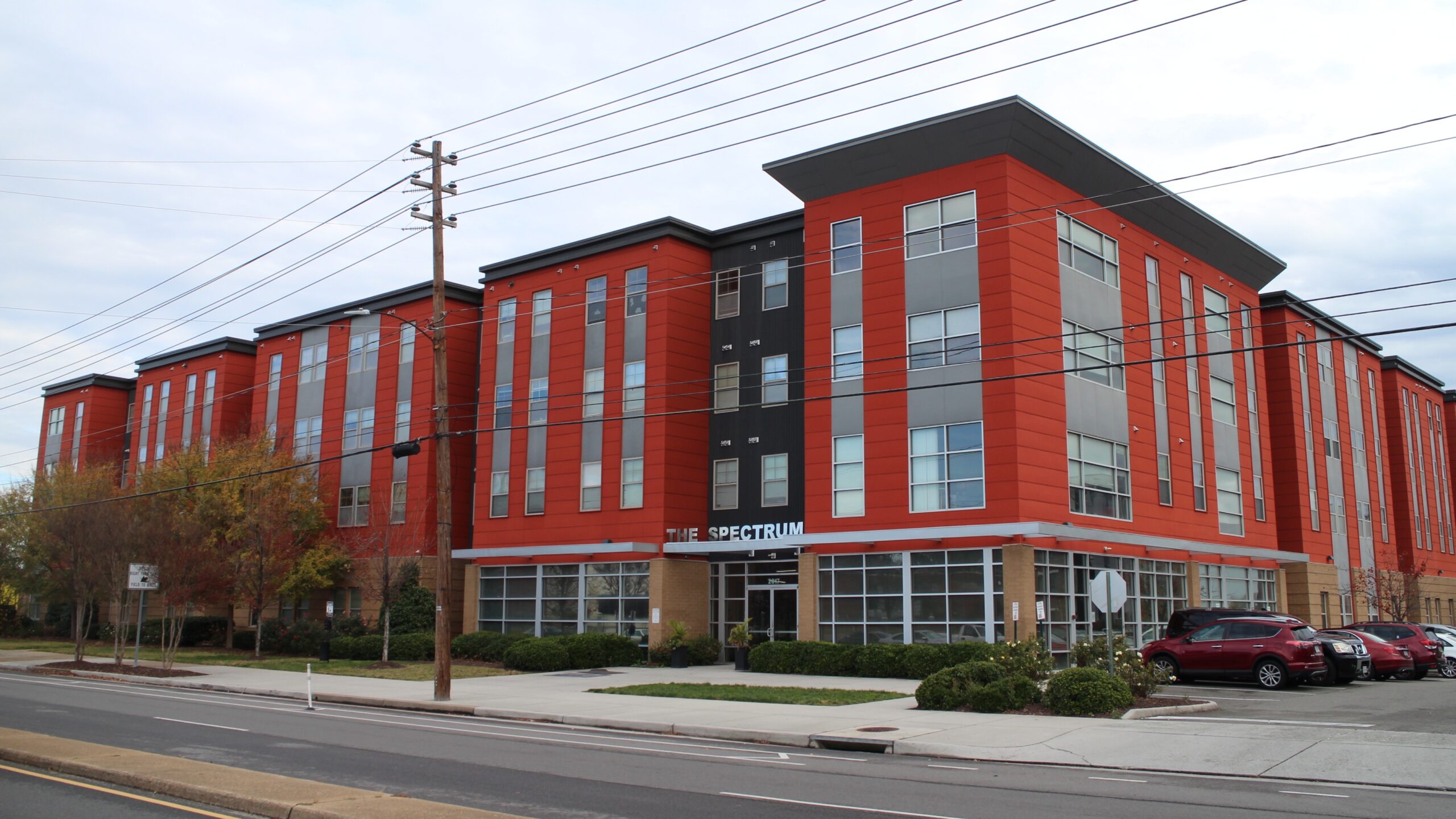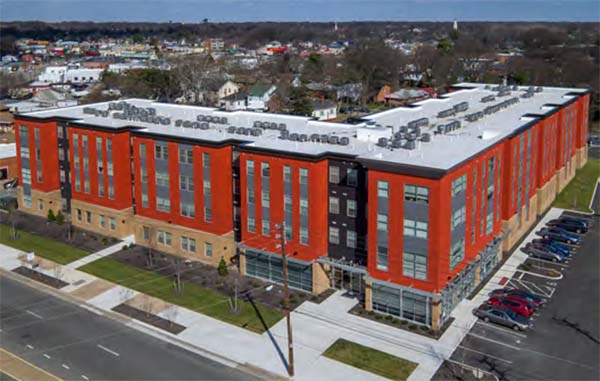Two firms out of the Northeast have struck a deal in Richmond’s Northside.
The Spectrum apartment building at 2017 Brook Road sold last month for $19.5 million, per city property records.
The complex has 103 units near Virginia Union University’s campus. The per-door sales price comes out to $189,000.
Its new owner is Conserve Holdings, a New Jersey-based investor and developer. Founder David Walkin said since Conserve’s launch in 2017, the firm has compiled a portfolio of around 2,000 units.
Walkin said the firm typically pursues multifamily buildings that are both larger and in busier parts of town than The Spectrum, but that it is bullish long-term on the neighborhood, where VUU and private developers alike have growth plans.
“It’s really evolving. We believe in the growth in this pocket, though it might take a couple more years to mature further,” Walkin said.
The Spectrum was built in 2015 and is over 95 percent leased. The city most recently assessed it at $17.4 million.
Conserve has an in-house property management division that Walkin said will take over managing The Spectrum. The firm is also planning to renovate parts of the building.
“Though it was built less than 10 years ago, the common area breezeways and other amenities are showing some age,” Walkin said.
The seller in the deal was Mercer Street Partners, a New York firm that retains a presence in Richmond, namely in the Arts District where it has a stake in landmarks Quirk Hotel and Common House, among other buildings.
Mercer Street had bought The Spectrum in 2017 for $11.4 million from its original developer, Kansas City-based Lanier United.
Mercer Street managing partner Joe LeVine said The Spectrum was the firm’s first-ever acquisition, and while it wasn’t actively looking to sell, Conserve made an attractive offer.
LeVine said that when Mercer Street first acquired the complex, it was nearly 25 percent vacant with high turnover.
“One of the things we’re most proud of with Spectrum Apartments has been our ability to turn around a new development that was quickly failing,” LeVine said.
“We knew going in that we wouldn’t be profitable right away. The issues the property faced were predominantly self-inflicted, caused by a lack of cash flow. With the support from our lender, Virginia Housing, we took a long-term view and the best way to fix things was to double-down and invest more into the community.”
Conserve, meanwhile, is continuing to look around the Richmond and broader Virginia market for additional deals.
“We have a few adaptive reuse projects under contract in markets that have a high barrier to entry and lack workforce housing,” Walkin said, while not commenting on specific locations.
Two firms out of the Northeast have struck a deal in Richmond’s Northside.
The Spectrum apartment building at 2017 Brook Road sold last month for $19.5 million, per city property records.
The complex has 103 units near Virginia Union University’s campus. The per-door sales price comes out to $189,000.
Its new owner is Conserve Holdings, a New Jersey-based investor and developer. Founder David Walkin said since Conserve’s launch in 2017, the firm has compiled a portfolio of around 2,000 units.
Walkin said the firm typically pursues multifamily buildings that are both larger and in busier parts of town than The Spectrum, but that it is bullish long-term on the neighborhood, where VUU and private developers alike have growth plans.
“It’s really evolving. We believe in the growth in this pocket, though it might take a couple more years to mature further,” Walkin said.
The Spectrum was built in 2015 and is over 95 percent leased. The city most recently assessed it at $17.4 million.
Conserve has an in-house property management division that Walkin said will take over managing The Spectrum. The firm is also planning to renovate parts of the building.
“Though it was built less than 10 years ago, the common area breezeways and other amenities are showing some age,” Walkin said.
The seller in the deal was Mercer Street Partners, a New York firm that retains a presence in Richmond, namely in the Arts District where it has a stake in landmarks Quirk Hotel and Common House, among other buildings.
Mercer Street had bought The Spectrum in 2017 for $11.4 million from its original developer, Kansas City-based Lanier United.
Mercer Street managing partner Joe LeVine said The Spectrum was the firm’s first-ever acquisition, and while it wasn’t actively looking to sell, Conserve made an attractive offer.
LeVine said that when Mercer Street first acquired the complex, it was nearly 25 percent vacant with high turnover.
“One of the things we’re most proud of with Spectrum Apartments has been our ability to turn around a new development that was quickly failing,” LeVine said.
“We knew going in that we wouldn’t be profitable right away. The issues the property faced were predominantly self-inflicted, caused by a lack of cash flow. With the support from our lender, Virginia Housing, we took a long-term view and the best way to fix things was to double-down and invest more into the community.”
Conserve, meanwhile, is continuing to look around the Richmond and broader Virginia market for additional deals.
“We have a few adaptive reuse projects under contract in markets that have a high barrier to entry and lack workforce housing,” Walkin said, while not commenting on specific locations.




